Search results for 'linseed oil cold press'
-
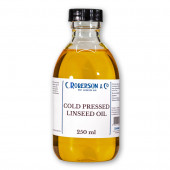
Roberson Cold Pressed Linseed Oil
Starting at: £7.50
Linseed Oil is derived from flax seeds, and appears on our shelves in many guises: Cold Pressed, Refined, Stand Oil, and as a key ingredient in many mediums. It has been appreciated for its drying properties since the Medieval period, and has become the most popular oil used in painting today due to the strong, flexible and glossy film that it creates. Cold Pressed Linseed Oil is ideal for the grinding of pigment to make oil paints. The process of producing Cold Pressed Linseed Oil results in a lower yield, but the resultant oil is of a superior quality to oil that has been extracted by other methods, creating a paint film that is more resistant to embrittlement on aging. Its yellow colour is caused by the high concentration of linolenic acid, the presence of which provides durability to the paint film. The amount of oil that each pigment requires can vary enormously. Alizarin Crimson, for example, requires a high percentage of oil compared to most other colours. We would always recommend mulling the pigment and oil together thoroughly to create a "short" or buttery paste, with evenly dispersed, well-coated pigment particles. This process contributes to the strength and flexibility of the paint film, and prevents the inclusion of excess oil. Origin: USA Learn More -
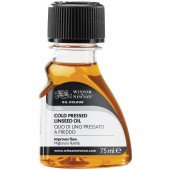
Winsor & Newton Cold Pressed Linseed Oil
Starting at: £9.20
From the Winsor & Newton website: A slightly yellow oil, which is extracted without the use of heat dries slightly quicker than refined linseed oil. Improves flow. Increases gloss & transparency. Reduces consistency and brushstrokes. Ideal for grinding pigments. Learn More -
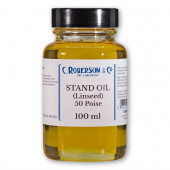
Roberson Linseed Stand Oil
Starting at: £10.50
Linseed Oil is derived from flax seeds, and appears on our shelves in many guises: Cold Pressed, Refined, Stand Oil, and as a key ingredient in many mediums. It has been appreciated for its drying properties since the Medieval period, and has become the most popular oil used in painting today due to the strong, flexible and glossy film that it creates.
Stand Oil is paler and more viscous than other Linseed Oils, having been heated and kept at temperature to provoke a molecular change. It is not suitable for grinding colours, but it is a very versatile ingredient that can be thinned with turpentine to create a glazing medium or be included in a varnish. Stand Oil is notable for its ability to smooth out brush strokes to create an enamel-like surface.
Learn More -
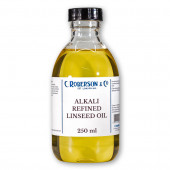
Roberson Refined Linseed Oil
Starting at: £13.30
Linseed Oil is derived from flax seeds, and appears on our shelves in many guises: Cold Pressed, Refined, Stand Oil, and as a key ingredient in many mediums. It has been appreciated for its drying properties since the Medieval period, and has become the most popular oil used in painting today due to the strong, flexible and glossy film that it creates.
Alkali Refined Linseed Oil has been treated to reduce its acidity, and is a useful ingredient in mediums and varnishes.
Learn More -
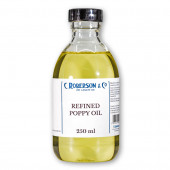
Roberson Poppy Oil
Starting at: £10.20
Poppy Oil is a slightly later addition to the artist's cabinet than Linseed Oil and Walnut Oil. It is generally used as a binder for pale colours, where the warmth of Linseed Oil is not desired. It provides a matte finish and dries very slowly, so we would not advise using it in conjunction with slow-drying pigments or in underpaintings. A paint film produced by Poppy Oil is weaker and softer than that created by Linseed Oil. This is because it contains a smaller percentage of linolenic acid than Linseed Oil; this substance imparts both strength and yellowness to an oil.
Although some of these properties can be perceived as drawbacks, paints made with Poppy Oil generally obtain a "short" or buttery texture without the addition of waxes or other additives, which can be an advantage for certain colours that produce poor consistencies in Linseed oil alone. Sometimes, the addition of a small quantity of Poppy Oil when grinding a tricky or "stringy" pigment in Cold Pressed Linseed Oil can introduce some of benefits of Poppy Oil, without transmitting its negative characteristics.
Paints made with Poppy Oil are particularly suited to "alla prima" working methods, where paint is applied spontaneously. When working in successive layers, Poppy Oil would only be appropriate for the final stages of a painting.
Learn More -
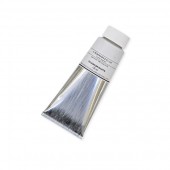
Roberson Artists' Oil Colour 120 ml
Starting at: £23.00
Unlike other commercially available oil paints, Roberson Artists' Oil Colours do not contain any fillers, extenders or stabilisers. Each paint consists solely of high-quality pigment that has been ground into cold pressed linseed oil, resulting in a highly pigmented paint. This strength of colour presents the possibility of greater economy of use and a less homogenised texture between each tube, instead allowing the unique qualities of each individual pigment to reveal themselves. By limiting our range to 59 shades, we dispense with colours that can be easily mixed, creating a focussed palette of intense, lightfast paints that offer limitless combinations.
Available in 40ml and 225ml tubes
Zinc White and Titanium White only available in this intermediate size of 120ml
Learn More -
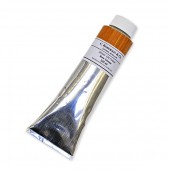
Roberson Artists' Oil Colour 225 ml
Starting at: £38.60
Unlike other commercially available oil paints, Roberson Artists' Oil Colours do not contain any fillers, extenders or stabilisers. Each paint consists solely of high-quality pigment that has been ground into cold pressed linseed oil, resulting in a highly pigmented paint. This strength of colour presents the possibility of greater economy of use and a less homogenised texture between each tube, instead allowing the unique qualities of each individual pigment to reveal themselves. By limiting our range to 59 shades, we dispense with colours that can be easily mixed, creating a focussed palette of intense, lightfast paints that offer limitless combinations.
Available in 40ml and 225ml tubes
Learn More -
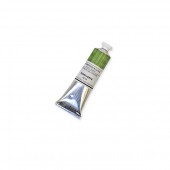
Roberson Artists' Oil Colour 40 ml
Starting at: £9.35
Unlike other commercially available oil paints, Roberson Artists' Oil Colours do not contain any fillers, extenders or stabilisers. Each paint consists solely of high-quality pigment that has been ground into cold pressed linseed oil, resulting in a highly pigmented paint. This strength of colour presents the possibility of greater economy of use and a less homogenised texture between each tube, instead allowing the unique qualities of each individual pigment to reveal themselves. By limiting our range to 59 shades, we dispense with colours that can be easily mixed, creating a focussed palette of intense, lightfast paints that offer limitless combinations.
Available in 40ml and 225ml tubes
Learn More -
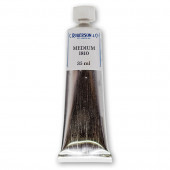
Roberson 1810 Medium
Starting at: £34.20
This is a traditional, high-oil "fat" painting medium, made using the highest quality materials. It will retain colour strength, is resistant to bleeding, has good flow release, is ideal for blending, and can be mixed with oil colours in any ratio. When dry, it creates an enamel-like surface.
Contains: Stand oil, Cold-pressed Linseed oil, Canada Balsam, Rectified Spirit of Turpentine, Beeswax, Driers.
Clean tools in white spirit. Do not use as a varnish, always mix with oil colour.
Learn More -
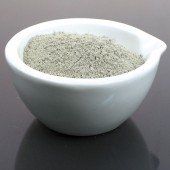
Fullers Earth
Starting at: £6.30
Fullers Earth is used to remove plant debris and other impurities from cold-pressed linseed oil, as its large particle size and unusual shape attracts unwanted matter and pulls it down, away from the surface of the oil. Our Fullers earth consist sly of Bentonite.
Learn More



